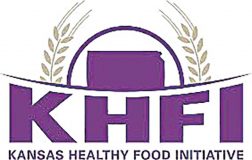by Terrie Ellerbee/editor-Midwest

Many independent grocers in Kansas’ rural communities struggle to remain open. This year alone, at least five independent grocers already have closed, according to David Procter, director of the Center for Engagement and Community Development (CECD) at Kansas State University (KSU).
“We know of several stores that have closed this year, so it is definitely an ongoing challenge,” Procter told The Shelby Report.
Some of the issues independent grocers in Kansas face challenge all retailers. Dollar General’s proliferation of locations has impacted small towns across the country.
“That is a very significant challenge to the viability of these small businesses,” Procter said. “They’re popping up all over. We definitely notice it here in rural Kansas.”
One thing that does make Kansas unique is how many small towns there are. Kansas has 105 counties and 627 incorporated municipalities. Procter said the majority or approximately 75 percent of the smaller towns have fewer than 2,500 residents.
“There’s an awful lot of those small towns, and in the rural part of the state here they struggle with population, just keeping people in town,” he said. “There are many folks who are moving out of state or to Kansas City, Wichita or someplace like that.”
KSU is home to the Rural Grocery Initiative (RGI), which was established more than a decade ago to address the rapid and steady decrease of local grocery stores throughout rural America.
The RGI combines the resources of multiple university departments, nonprofits, rural grocery stores and government agencies to identify and develop new models to enhance food security in rural areas.
KSU and a broad range of partners will host the sixth National Rural Grocery Summit, which will be held in Manhattan, June 25-26 (after press time). The event brings together store owners, citizen leaders, food suppliers, academic researchers, policymakers and funders to talk with one another about how best to sustain rural grocery stores.
 More than 800,000 Kansans do not live within a reasonable distance of a grocery store that offers healthy, affordable food, and more than 30 percent of Kansas counties are considered food deserts, according to the Kansas Health Foundation. To combat the problem, it has provided $4.2 million for the Kansas Healthy Food Initiative (KHFI), which kicked off last November and has partnered with KSU’s initiative.
More than 800,000 Kansans do not live within a reasonable distance of a grocery store that offers healthy, affordable food, and more than 30 percent of Kansas counties are considered food deserts, according to the Kansas Health Foundation. To combat the problem, it has provided $4.2 million for the Kansas Healthy Food Initiative (KHFI), which kicked off last November and has partnered with KSU’s initiative.
The KHFI provides funds to help start up healthy food-related businesses. Healthy food projects and investors can leverage KHFI funds to sustain or create food outlets where there is great need. The funds can be used for the development or renovation of a grocery store, improving food distribution to rural grocers and offering technology or energy-efficient improvements to grocers, as well as seeking solutions for food access points in food deserts.
KSU’s CECD is helping to implement the KHFI. CECD works directly with retail outlets and organizations, reviews all applicants for eligibility and connects grocers with available technical assistance resources.
To be eligible for KHFI funds, applicants must meet at least one of three requirements. They must:
• Plan to open or renovate a supermarket or other grocery retail outlet primarily selling affordable fresh produce, seafood, meat, dairy and other groceries.
• Develop an alternative food project such as an affordable healthy neighborhood food store, farmers’ market or food hub.
• Improve an existing market’s ability to stock and sell a variety of affordable fresh fruits and vegetables where fresh produce carrying capacity had previously been limited or nonexistent.
Applicants or their management team must demonstrate experience managing a grocery store or fresh food retail outlet that is similar to the proposed project. A minimum of three years of comparable management experience is recommended. The project must be in a low- to moderate-income area or in an underserved area (or both).
Loans from the KHFI program can fund costs associated with real estate acquisition, predevelopment, construction or rehabilitation, equipment and infrastructure. Loans are made in instances where conventional financial institutions either do not offer financing or the conventional financing offered is insufficient or on terms that harm the feasibility of the project. Loan applicants are required to contribute 5 percent equity to the project being financed. Loan amounts range from $10,000 to $2.5 million with terms of one to 15 years.
Grants may be awarded to eligible applicants if they can demonstrate the necessity of the funds. Grants range from $5,000 to $100,000 with preference given to projects that will have a high impact or that have leveraged other financial sources. Grants may be used for capital improvements, equipment, predevelopment, startup working capital and scaling production/distribution.
“We’ve funded several grocery stores that have either started from scratch—so an absolutely new grocery store—or provided dollars to help expand independent grocery stores,” Procter said. “It’s very exciting and it’s really helped make a difference here in Kansas.”
He added that most of the funds are in the form of loans, with “very few” grants.
The projects Procter spoke about had been funded only about a month before The Shelby Report reached him so he was hesitant to share specifics.
“One of the things that we’re trying to be cautious about is some of these businesses are concerned about competition finding out too early about them,” he said. “We’re still trying to work out when is the appropriate time to highlight these examples, and so we ’re still hammering those details out.”
For more information about the KHFI, visit kansashealthyfood.org.
Keep reading:
Missouri General Assembly Has ‘Most Successful Session In The State’s History’
https://www.theshelbyreport.com/2018/06/19/north-florida-market-profile-2018/

